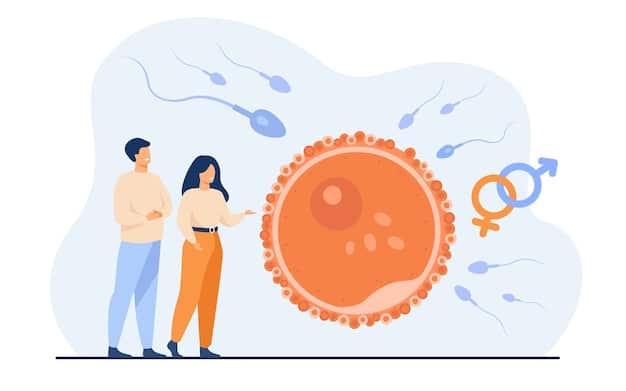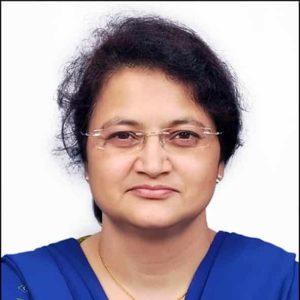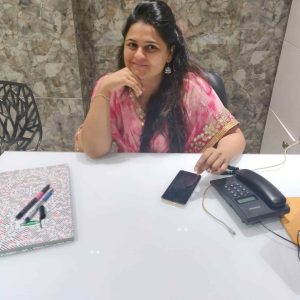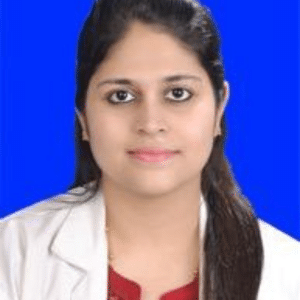Jilla IVF is World Class Fertility Clinic and IVF Centre Backed by 24+ Years of Experience
About Us
Jilla IVF is a world class IVF center in Mumbai backed by over 24 years of experience in the field. It has consistently high pregnancy rates at some of the lowest costs in the city. Jilla IVF prides itself on the excellence of its IVF lab, its patient management protocols, and on making infertility treatment accessible to ALL.Our first consultation is free to make sure our doors are open to everyone. At Jilla IVF, your treatment will be personalised to solve your problems. We have a team that will work very hard with you and for you. Let’s solve your infertility problem together!
Help Us Understand Your Difficulty
Speak To Our Experts Today
Message
Our Contact
Email Address
natasha.jilla@gmail.com
Call Us
+91 8080943943
Social Media
Welcome to Jilla Hospital – The Best IVF Centre in Mumbai
At Jilla Hospital, we understand that starting a family is a deeply personal and emotional journey. As the Best IVF Centre in Mumbai, our mission is to provide comprehensive and compassionate care to help you achieve your dream of parenthood. Our team of experienced IVF specialists in Mumbai is dedicated to offering personalized treatment plans tailored to your unique needs.

Why Choose Jilla Hospital?
1. Experienced IVF Specialists in Mumbai
Jilla Hospital boasts a team of highly qualified and experienced IVF specialists in Mumbai. Our experts are at the forefront of fertility treatments, utilizing the latest advancements in reproductive technology to maximize your chances of success.
2. State-of-the-Art Facilities
As the Best Fertility Center in Mumbai, Jilla Hospital is equipped with state-of-the-art facilities and advanced medical technology. Our modern laboratories and treatment rooms are designed to create an optimal environment for fertility procedures. We adhere to strict quality standards to ensure the safety and success of every treatment we offer.
3. Comprehensive Fertility Services
At Jilla Hospital, we offer a wide range of fertility services to address various reproductive challenges. Our services include In Vitro Fertilization (IVF), Intracytoplasmic Sperm Injection (ICSI), Egg Freezing, Sperm Donation, Surrogacy, and more. As the Best IVF Centre in Mumbai, we provide holistic care that encompasses all aspects of fertility treatment, from initial consultation to post-treatment support.
Services We Offer
- Consulting
- Treatments
Taking fertility and medical history, studying previous reports, sonography of wife, semen test of husband and a discussion with our doctors and counsellors about your fertility issues. Link to What To Expect On Your First Visit To Jilla IVF.
Trans-vaginal sonography to get an understanding of the female reproductive tract – the uterus, its lining, tubes, ovaries and follicle count in the ovaries.
Done on our specialised microscope, to understand sperm count, motility (speed), presence abnormal forms, presence of infection and the integrity of the sperms.
Taking fertility and medical history, studying previous reports, sonography of wife, semen test of husband and a discussion with our doctors and counsellors about your fertility issues. Link to What To Expect On Your First Visit To Jilla IVF.
In ICSI, we are able to select a single sperm and inject it into an egg. ICSI is very useful when there is male factor for infertility – low sperm count, low sperm motility, high percentage of abnormal forms, etc.
Stands for Testicular Sperm Aspiration. TESA is done to extract sperms directly from the testes. This is required in cases where sperms are being produced in the body, but are not seen in the ejaculated sample.
Incase one of the gametes – sperms or eggs, is missing or of very low quality, donor services may be required.
A procedure to examine the inside of the uterus (womb).
A surgical procedure that involves making a small incision on the abdomen and inserting a probe with a light and camera to examine the ovaries, the fallopian tubes and the uterus.
Our Journey
First IVF baby of Marathwada
First Frozen Embryo Pregnancy of Marthawada
First ICSI Baby of Marathwada
First Frozen Oocyte Pregnancy
Jilla IVF Mumbai Started
First IVF baby of Marathwada
First ICSI Baby of Marathwada
Jilla IVF Mumbai Started
First Frozen Embryo Pregnancy of Marthawada
First Frozen Oocyte Pregnancy

Why Choose JILLA IVF Center


Why Choose JILLA IVF Center
JILLA IVF Centers
- Mumbai
- Aurangabad
Our Team
Natasha
Natasha Jilla is a world class embryologist having recieved her MSc in Clinical Embryology from the University of Leeds, UK.
Dr. Preeti Shetty
INFERTILITY SPECIALIST
Dr. Preeti Shetty is an infertility specialist at Jilla IVF Center with 9 years of clinical experience.
Dr. Snehal Sanjay Chavan
Infertility Specialist
Highly qualified and highly experienced, Dr. Snehal Chavan moved to Mumbai from her hometown of Nasik last year.
Have a Question?
FAQ
We are here to help you 7 days a week and respond within 24 hours. Plus, you can find most answers to your questions right on this page.
IVF is not a particularly painful procedure. The most painful part of IVF is the injections. There are 1-2 injections per day for 10-12 days during oocyte stimulation. With recent advances, this too has been made more comfortable for the patients.
IVF stands for In Vitro Fertilisation where In Vitro means “outside the body”. Literally, IVF means creating a baby outside the body.
IVF is an advanced fertility treatment. First, you need to understand if it is even required for your conception. The best course of action would be to do a fertility consultation where the doctor can perform basic fertility tests (sonography scan of the wife, semen test of the husband), read previous fertility related reports and give you a fertility assessment. At Jilla IVF, this consultation is free 🙂
IVF process can be broken into:
1. Consultation and deciding treatment: This is pre-treatment step where all investigations are performed, the final treatment and final treatment costs are decided.
2. Stimulation: Starting from the second day of menses, 10 days of hormone injections are given daily in order to grow all the eggs in the wife’s ovaries. At the end of stimulation, a “trigger” injection is given.
3. Oocyte Pick Up: 36 Hours after the trigger injection, eggs are retrieved from the wife’s ovaries in a procedure called Oocyte Pick Up. The husband gives a semen sample on this day too and the eggs and sperms are fertilised in the IVF Lab on this day.
4. Embryo Transfer/Embryo Freezing: 5 days after Oocyte Pick Up, we see that some embryos have grown well for 5 days, while other embryos’ growth has been suspended. This is a form of natural selection where the strongest embryo survives and grows while the weaker embryos’ growth stops. It is only the good growing day 5 embryo that we transfer back into the wife’s uterus, the other embryos get discarded. At this stage, either the good embryos are transferred, or they are frozen in order to transfer at a later date. Read “When are embryos frozen?”
5. Result Day: 14 days after embryo transfer, we can do a Beta HCG blood test to check if a pregnancy has resulted. A value above 100 indicates that it has!
6. Further Counselling: In either case – pregnancy or not, further counselling will inform us about the next steps for us. In case of an IVF failure, two things are important. One, that we do not lose hope. IVF is not a complete science yet and results are not guaranteed. There is always some chance of failure. Two, we must critically learn from our IVF cycle. Lots of things in an IVF cycle happen for the first time. We see eggs under a microscope for the first time, we see the growth of the embryo for 5 days in our lab, we understand embryo implantation after doing a transfer. All of these give us a better understanding of which exact step is failing and how we can do better. A further plan for treatment should be discussed with the patient.
An IVF cycle starts from the 2nd of menses and ends around the 20th day. It takes 18 days on average assuming that embryo transfer is done in the same cycle. In some cases, we may freeze embryos and transfer them in a later month. Read “Why/when to freeze embryos?” to learn more about embryo freezing. In these cases, the time taken is the number of months we wait before we transfer the embryo back.
Embryo freezing or cryopreservation is done to preserve the embryo for later transfer. We may want to do this in a few cases –
1. Thin Endometrium: If the lining of the uterus (endometrium) is not prepared to the required thickness (more than 8mm), it will not be able to support the embryo. So, we should wait until we are able to grow the endometrium to the required thickness. Read “Thin Endometrium” to understand more.
2. PCOS/Large Number Of Eggs: For patients with large number of eggs (more than 20), the effect of having a lot of eggs, hormone injections given during stimulation, and a possible pregnancy from the result of embryo transfer, can increase the hormone level so much that there is a risk of Ovarian Hyperstimulation. This is a serious condition wherein the patient may need to be shifted to an intensive care unit. So, when there are a large number of eggs, it is safer to preserve the eggs in the first cycle, and transfer them in the next cycle to make sure the hormone levels do not rise too high and that we are safe from Ovarian Hypterstimulation. We follow this as a policy at Jilla IVF and our clinic has been Ovarian Hyperstimulation free for many years now!
3. Infection: Sometimes, the uterus may be infected (for example, with Tuberculosis or Chlamydia). This infection will not allow the embryo to survive so we first complete a dose of antibiotics to suppress the infection, and transfer.
4. Fertility Preservation: The beauty of freezing or cryopreservation is that it preserves the age of the embryo. For example, an embryo made from a 30 year old female’s eggs and a 32 year old man’s sperms will have the same age even when it is used 8 years later when the female is 38 years old and the man is 40. This is important because if the couple was to try at the ages of 38 and 40, their fertility potential will have vastly reduced because of their age. The frozen embryos help preserve their fertility for later use.
Jilla Hospital-Mumbai
Jilla IVF Center,
202 Crystal Point Above Star Bazaar,
Near DN Nagar Metro Station,
Exit Number 3 Link Road,
Andheri West 400053.
Jilla Hospital-Aurangabad
84, Motiwala Nagar, Central Naka Road, Aurangabad.
Maharashtra – 431001
Tel: (0240) 2337245,
2337346












